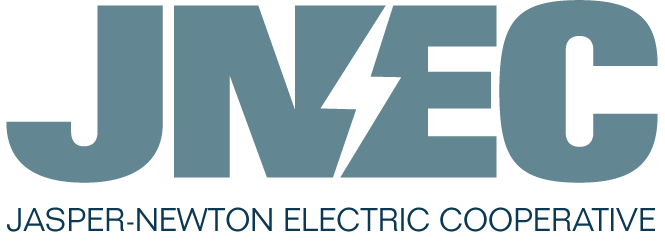How is an electric cooperative different than a traditional investor-owned electric company?
Both an electric cooperative and an investor-owned utility distribute electricity to end-users in pretty much the same way. The main difference between the two entities is more related to the fact that an electric cooperative is a not-for-profit organization owned by those it serves. An investor-owned company is owned by stockholders, who may or may not be customers. Cooperatives are set up to provide services at a low cost to their members. When prudent financial considerations allow, previously retained profit margins are returned to the cooperative’s members by way of a capital credit check.
Why am I required to pay a membership fee and what are the advantages and obligations of being a member-owner of an electric cooperative?
When you apply and accept service, you become a member-owner of the Cooperative. The fee is a one-time refundable charge of $20. When you decide to discontinue your membership, we will refund the membership fee. As a member, you have the right to vote at annual meetings and district meetings as well as elect a member of the Board to represent your district. The bylaws of the Cooperative more fully explain your rights and obligations as a member.
Each month on my bill there is a PCRF charge. What is this?
PCRF stands for Power Cost Recovery Factor, a.k.a. fuel cost. This is the portion of your bill that varies each month based on the cost of fuel to generate electricity. This factor rises and falls as fuel costs move up and down.
Can I get my deposit waived?
To learn how to get your deposit waived, visit our Start/Stop Service page here and learn more under the Existing Service section.
Why do I get a notice telling me to expect a power outage on a certain date & time?
Jasper-Newton Electric Cooperative, Inc.’s electric delivery system requires perpetual maintenance to maintain reliable service. We will occasionally need to interrupt power to homes and businesses while some of this work is being performed. We do our best to inform all affected members beforehand. We fully understand that these planned outages can be inconvenient, so we do our best to make them as short as possible. We really appreciate your patience and understanding during these times.
Is there a map of JNEC service territory?
Yes, it can be found here.
What is a Priority Accounts?
In every outage, JNEC works as quickly as possible to restore power to its member-owners. However, the cooperative also maintains a list of members who have demonstrated medical necessity for Priority Service. These accounts are flagged in JNEC’s member database. Extra precautions will be taken to minimize service interruptions to locations where life-sustaining equipment is reported. Also, we will attempt to advise these special members in advance of any planned outages. For more information on power restoration visit our page here. All households with residents dependent upon life support should print out a Life-Sustaining Equipment Notification Form here. The form should be completed and returned to JNEC.
What is PCRF? And why does it fluctuate?
PCRF is simply an acronym for Power Cost Recovery Factor. The PCRF is always on your JNEC electric bill and is recalculated every month. All electric utility bills include a PCRF that reflects the rise and fall in the cost of generating wholesale power. This monthly charge shall be increased or decreased on a per-kWh basis. To derive the PCRF charge, multiply the total monthly billed kilowatt hours by the appropriate monthly factor found on your billing statement.
How do I report a burned out security light?
If you notice that an outdoor security light installed by JNEC appears to be out or functioning improperly, please contact us at 800-231-9340 or 409-423-2241 during business hours, Monday- Friday 8am-5pm. You can also contact us online at this page here.
I want to change my overhead lines to underground. Is this possible and how much does it cost?
Underground service can be installed upon request, but a charge will be incurred by the member. This charge is determined by JNEC’s engineering department. Changing existing overhead service to underground will incur a higher charge. Underground service lines are more expensive to install than overhead services, but do not require as much maintenance.
How do I read my meter?
Most JNEC meters are read remotely over our power lines, so you don’t have to send us a monthly meter reading. However, if you would like to track your electric consumption by reading your own meter, see our page on meter specifications here.
I think my meter is inaccurate. How do I have it tested?
You can request one test free of charge every four years. You may have your meter tested more often, but if the meter is within accuracy standards of plus or minus 2 percent, the Cooperative may charge the consumer a fee, which reflects the cost to test the meter. To request meter testing, please contact us at 800-231-9340 or 409-423-2241 during business hours, Monday-Friday 8am-5pm.
If you have any more questions, contact us here or by calling us at 800-231-9340 or 409-423-2241.
